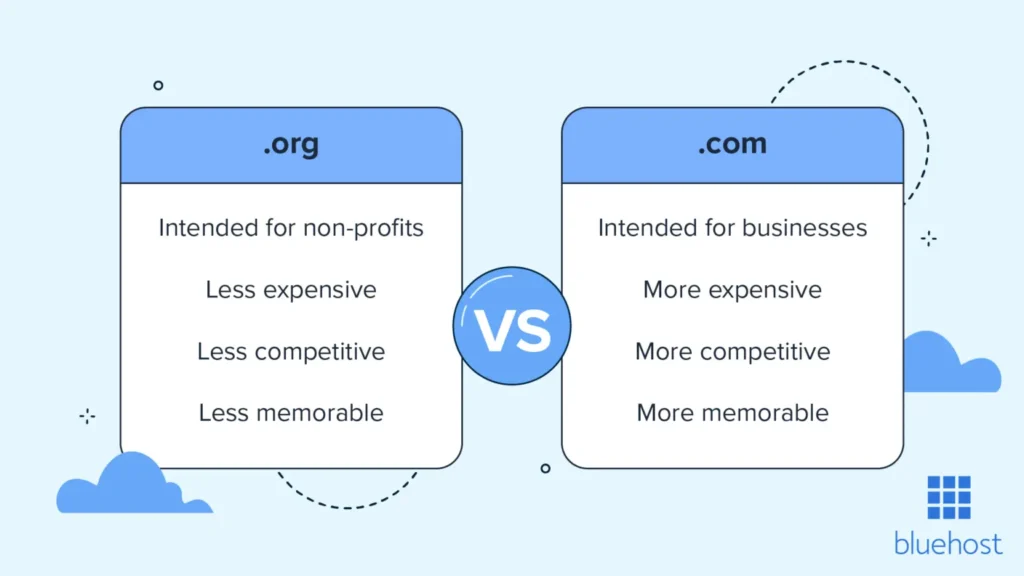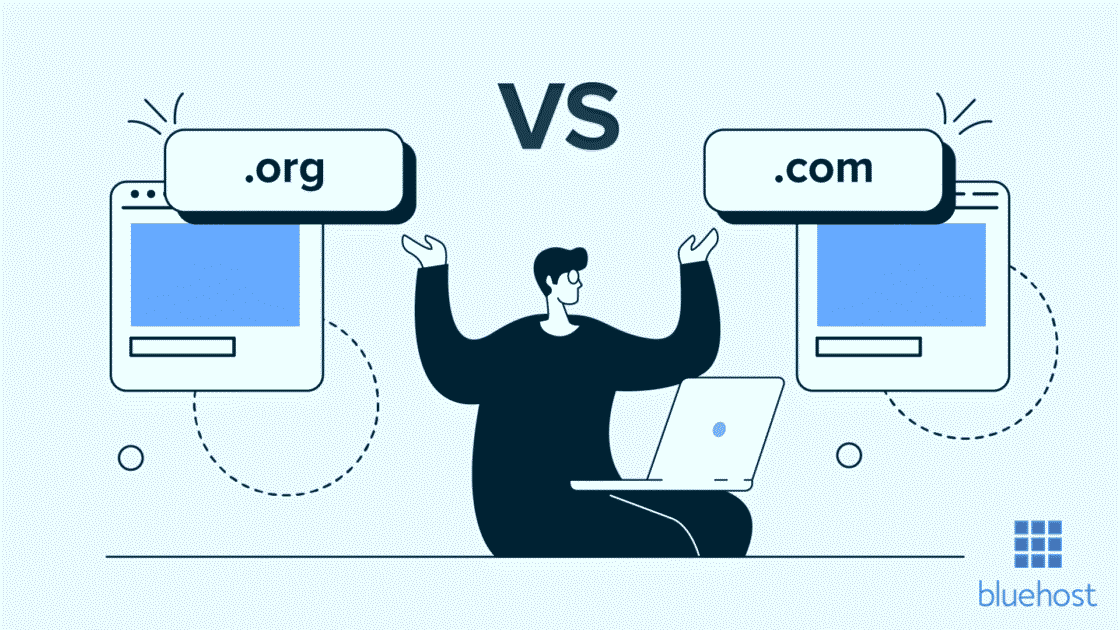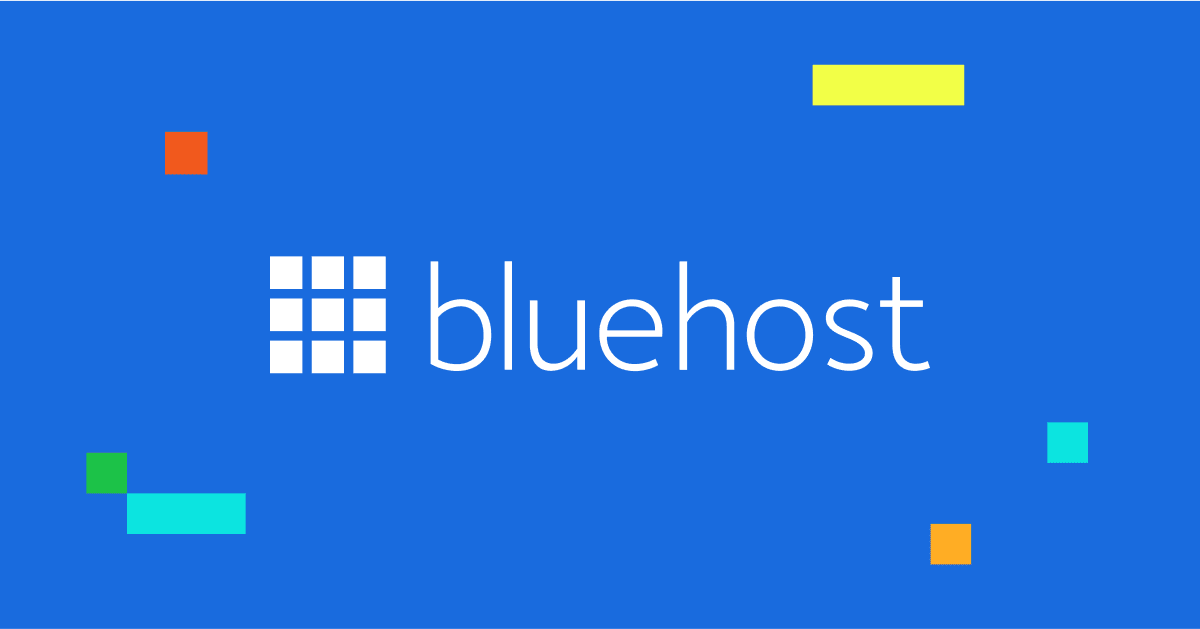Key highlights
- Discover the fundamental differences between .org vs .com domains to make an informed choice for your online presence.
- Learn which domain name extension best aligns with your organization’s purpose and enhances your credibility with your target audience.
- Explore alternative options for the right domain extension when your preferred domain name is already taken
- Understand how your domain choice impacts your SEO performance and brand perception in the digital landscape.
- Uncover ways to get a free domain with hosting services from hosting and internet service providers and maximize your website investment from day one.
Standing at the crossroads of creating a website, you may face a crucial decision. Which domain extension will serve your purpose best? The choice between .org and .com can shape your digital identity for years.
Your domain name is more than just a web address. It’s the first impression visitors have of your brand or organization. It can influence everything from your credibility and trustworthiness to your branding and search visibility. Getting this right is of prime importance.
So, which is better for your website: .org or .com? That’s exactly what we’ll explore here.
This guide will walk you through all the factors you should consider while deciding between .org vs .com domains. By the end of this blog, you’ll be able to make a smart and strategic choice that supports your goals in 2026 and beyond.
So, let’s start by looking at the difference between .org and .com domains.
What is the difference between .org vs .com domain?

Domain extensions, also called top-level domains (TLDs), serve as identifiers within the domain name system that tell visitors about your website’s purpose. The .org and .com extensions have distinct histories and connotations that influence how people perceive your site.
Here’s a comparative overview to help you understand the difference between .org and .com domains:
| Feature | .org domain | .com domain |
| Full name | Organization | Commercial |
| Primary use | Nonprofits, educational institutions, open-source projects | Businesses, commercial entities, personal brands |
| Original purpose | Non-commercial organizations | Commercial enterprises |
| Current restrictions | None (open registration) | None (open registration) |
| Global recognition | High | Highest |
| Domain authority | Strong for causes | Strong for businesses |
| Availability | More options available | Most popular names taken |
Let’s examine each feature in detail to better understand these domain extensions:
1. Full name: The .com extension stands for “commercial” while .org represents “organization.” The meaning of domain extensions reflects their original intended purpose as generic top level domain.
2. Primary use: Today, .com domains are predominantly used by for profit businesses, for profit entities and personal websites focused on profit-making or branding. The .org extension typically serves nonprofit websites, educational institutions and open-source projects with community-focused missions.
3. Original purpose: The .com extension was created specifically for commercial businesses as part of the internet’s original domain structure. The .org extension was originally intended for organizations not focused on commercial gain, providing a distinct identity for mission-driven entities.
4. Current restrictions: The .org and .com domains don’t have any formal restrictions on registration by their respective domain registries. Anyone can register either domain type without proving organizational status or business credentials. This open registration policy has led to some blurring of the traditional boundaries.
5. Global recognition: Both extensions enjoy high global recognition, though .com maintains the highest level of universal familiarity. The .org extension carries strong recognition particularly in philanthropic and educational sectors.
6. Domain authority: The .org extension carries natural authority for cause-related and nonprofit organizations. The .com extension projects authority for business entities and commercial ventures. This perceived authority influences visitor trust before any content is viewed.
7. Availability: With decades of registrations behind us, many desirable .com domains have been claimed. The .org extension often offers better availability for shorter, more memorable domain names without requiring compromises or modifications.
Your choice of .org or .com should consider both audience expectations and your organization’s purpose. The right extension can instantly communicate your website’s nature before a visitor even clicks through. Now let’s look at the pros and cons of these domain extensions.
Also read: How Do Domains Work? The Ultimate Guide
What are the pros and cons of .org domain?
Understanding the advantages and limitations of an .org domain will help you determine if it’s the right fit for your website’s goals and audience expectations. Here are the pros of .org domain:
Pros of .org domain
- Trust factor: .org domains often convey credibility and trustworthiness for mission-driven organizations.
- Donor confidence: Potential donors may feel more comfortable giving to organizations with .org domains.
- Better availability: Many desirable names that are taken in the .com space remain available as .org domains.
- Community perception: Suggests community focus and purpose beyond profit, enhancing your ethical positioning.
- Lower acquisition costs: When purchasing existing domains, .org options typically cost less than equivalent .com domains.
Cons of .org domain
- Limited commercial appeal: May not be ideal if your primary goal is selling products or services.
- Potential misalignment: Using .org for commercial purposes might create confusion about your organization’s nature.
- Secondary choice perception: Some users automatically type “.com” when entering domain names, potentially missing your site.
- Investment limitations: May be less valuable as a long-term digital asset compared to equivalent .com domains if you’re investing in domain names.
- Fundraising misconceptions: Some visitors might assume all .org websites accept donations or are tax-exempt organizations.
The .org domain extension continues to serve as a powerful signal about your organization’s values and purpose. When choosing this extension, ensure it aligns with how you want your audience to perceive your mission from the very first interaction.
Now we’ll take a look at the pros and cons of .com domain.
What are the pros and cons of .com domain?
The .com domain remains the most recognized extension globally, but it comes with its own set of pros and cons. Let’s look at the advantages of .com domain:
Pros of .com domain
- Universal recognition: Most internet users naturally assume websites end with .com, giving you better discoverability.
- Commercial credibility: Signals professionalism and business legitimacy in the marketplace.
- Memorability factor: Users are more likely to remember and correctly enter a .com domain.
- Higher resale value: .com domains typically maintain stronger investment value than other extensions.
- Brand protection: Owning the .com version helps prevent competitors from capitalizing on your brand name.
Cons of .com domain
- Limited availability: Most short, memorable .com domains have already been registered.
- Higher acquisition costs: Purchasing existing .com domains often requires significant investment.
- Expectations of commerciality: May not align with the image of educational or nonprofit organizations.
- Generic perception: Doesn’t immediately communicate specific industry or organizational purpose.
- Potential brand dilution: Similar sounding names with .com extensions might cause confusion with your brand.
The .com domain remains the gold standard for commercial websites and businesses seeking broad market recognition. While it carries undeniable advantages, you must weigh these against practical considerations like availability and your specific organizational needs.
Now that you have a thorough knowledge of .org vs .com domains, let’s decide which domain extension is right for your website in 2026.
Also read: Best .Com Alternatives: Find the Perfect Domain Extension
Should I use .com or .org domain in 2026?
The audience perception attached with each domain still stands in 2026. Your domain extensions, whether .com or .org should directly reflect your organization’s purpose and audience expectations. When considering .com vs .org for SEO, choose .com if you’re selling products or services or building a commercial brand. The .com extension immediately signals business legitimacy and professionalism to visitors.
Choose .org if you’re operating a non profit organization, educational institution, open-source project or community-focused initiative. The .org extension communicates your mission-driven focus and can build trust with donors, volunteers and stakeholders. It aligns expectations properly when profit isn’t your primary goal.
Consider your long-term plans before deciding on .org vs .com for SEO. If you might eventually commercialize or shift your business model, securing both extensions early could prove valuable. Many established organizations own multiple domain extensions and redirect them to their primary site. This approach protects your brand while accommodating how different users might search for you.
With your mind made up about which domain extension to choose, we’ll talk about how to secure the perfect domain of your choice.
How can Bluehost help you choose the right domain?
Bluehost offers comprehensive domain registration services that simplify finding and securing the perfect web address for your project. With our user-friendly domain search tool, you can quickly check availability for both .org and .com versions of your desired name. Our system shows alternatives when your first choice isn’t available, saving you valuable research time.
We support over all popular domain extensions beyond just .org and .com, opening creative possibilities for your web address. You can also secure multiple domains at once and store domain variations to future proof your business. With Bluehost as your domain partner the protection of your online presence is assured.
Pro tip: Register domains for several years upfront to avoid renewal expenses and secure long-term ownership.
Once you’re set on a particular domain, it’ll serve as the foundation of your brand. So, it’s important to know how domains affect your brand.
How does the choice of domain affect branding and trust?
Your domain extension is the single most critical element of your online identity. It shapes visitors’ expectations before they even view your content. Here are the different ways in which your choice of domain will shape the branding and trust for your website.
- Brand consistency: Understanding the difference between .org and .com helps you create a coherent digital identity.
- Trust signals: Using the expected extension for your sector helps establish immediate credibility with your target audience.
- Memorability impact: The right extension makes your complete web address more intuitive and easier to remember.
- Industry alignment: Certain sectors have established domain conventions that audiences have come to expect.
- International considerations: Different countries may have different assumptions about which country code domains represent trustworthiness.
- Search behavior compatibility: Your extension should match how people naturally search for organizations like yours.
Your domain extension works constantly as a subtle brand ambassador and the right choice harmonizes trust with your specific target audience. However, SEO is one factor you should be closely looking at while selecting a domain. It is directly tied to your website’s visibility on search result pages. In the following section we’ll be looking at the impact of domains on SEO.
Also read: How to Choose Your Domain Name | Everything You Need to Know
From a technical SEO perspective, there is not much difference between .org and .com domains. Google has officially confirmed that domain extensions don’t impact rankings. What matters more is your content quality, site structure and overall optimization strategy.
However, user behavior does influence how your domain performs indirectly. Users tend to click more frequently on domain extensions that match their expectations for your type of organization. Higher click-through rates positively affect your search performance over time. When users find a mismatch between your extension and content, they may bounce quickly, sending negative signals to search engines.
Meanwhile, if you want to target nearby customers, local SEO considerations might favor country specific domains. For organizations with global reach, both .org and .com provide equally strong foundations for international visibility.
Remember that domain availability changes constantly as registrations expire and become available again. So, what if you can’t find your ideal domain? Let’s take a look.
What if your ideal domain is taken?
Finding your perfect domain name already registered can feel disappointing, but several alternatives can still effectively represent your brand:
- Consider alternative extensions: Beyond .org and .com, explore other domain extensions like .net domain (for network organizations) or .co domain (for companies).
- Add relevant modifiers: Incorporate descriptive words like “get,” “try,” or your location to create distinctive variations.
- Use industry-specific extensions: Newer TLDs like .tech, .agency or .ngo can signal your sector focus effectively.
- Create compound names: Combine related terms to form unique domain names that remain relevant to your brand.
- Incorporate your slogan: A shortened version of your tagline might make a memorable and available domain.
- Include action words: Terms that suggest engagement can create dynamic domain alternatives.
Bluehost’s website name generator can help overcome this challenge by suggesting creative alternatives from your website description. This innovative feature generates website name suggestions paired with the best domain extension that remain available for registration.
And that’s not all. With Bluehost you can also get your choice of domain for free. We’ll talk about how.
How to get a domain name for free with Bluehost?
To build a website with the domain name of your choice, you’ll eventually have to purchase a hosting plan to host your website in the server. Bluehost’s Shared Hosting plans come with a free domain name for the first year of service. This bundled benefit eliminates separate registration fees while ensuring professional management of your web address.
When you sign up for any Bluehost Shared Hosting package, you can select your preferred domain during the checkout process. The system automatically checks availability and applies the free domain credit to your chosen name. This integration streamlines your website launch by handling both hosting and domain setup through a single provider.
Secure your perfect .com or .org domain—free for the first year—with any Bluehost Shared Hosting plan.
- Free domain
- WordPress-ready hosting
- 24/7 expert support
Starting with a bundled domain and hosting package also simplifies technical setup and consolidates billing into one service. With just a few clicks, you’ll have immediate access to everything needed for a successful website launch.
Final thoughts
The choice between .org and .com ultimately comes down to alignment with your purpose and audience expectations. Your domain extension silently communicates important information about who you are and what you do. Taking time to make this decision thoughtfully pays dividends throughout your digital journey.
Remember that your domain serves as your permanent address in the digital landscape. It appears on your marketing materials, business cards and every email you send. The right extension reinforces your brand identity while the wrong one might create subtle disconnects with your audience.
Quick Recap: Should You Choose .org or .com?
- .org is ideal for nonprofits, education, and community-driven projects.
- .com is best for business, branding, and commercial visibility.
- Both domains rank equally in Google.
- Get either one free with Bluehost Shared Hosting.
Whether you choose .org or .com, Bluehost provides all the tools needed to secure and manage your domain effectively. Our web hosting plans offer an excellent starting point with a free domain included for the first year.
Ready to establish your online presence with the perfect domain? Visit Bluehost Domains to start now!
FAQs
Choose .com for business and commercial projects like ecommerce sites where profitability is a primary goal. Select .org for educational initiatives, non profit organizations and community-focused organizations. Your choice should reflect your primary purpose and audience expectations.
Yes, you can use a .org domain from your domain registrar for a business as there are no technical restrictions. However, it might create confusion about your commercial nature. Consider whether this potential misalignment outweighs any benefits from using the .org extension. If possible, use a .com or .net extension.
No, Google has confirmed that domain extensions don’t directly influence rankings of professional websites. Content quality, site structure and backlink profile matter much more for search engine results.
The .org extension typically serves nonprofits better by immediately signaling their mission-driven focus. This alignment helps build trust with donors and volunteers who expect .org for charitable organizations. Many established nonprofits also secure the .com version for brand protection.



Write A Comment